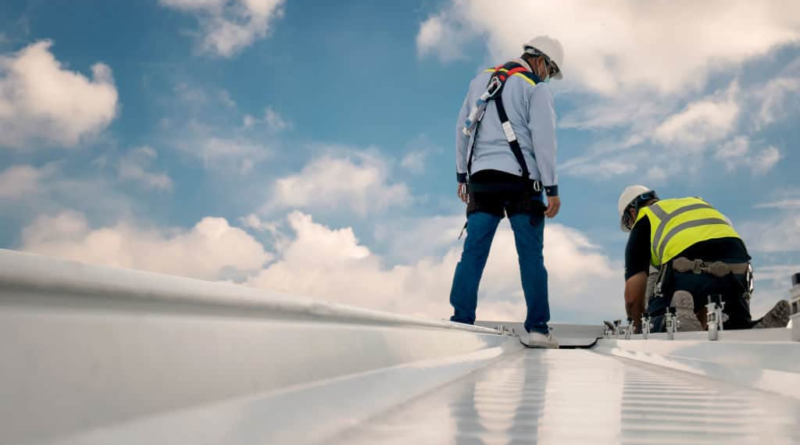Navigating the Landscape of Commercial Roofing Services: What You Need to Know
In the ever-evolving world of commercial construction, the significance of high-quality roofing cannot be overstated. As one of the most critical components of a building, the roofing system not only protects the structure from the elements but also contributes to energy efficiency and overall aesthetics. For business owners and facility managers, understanding the nuances of commercial roofing services is essential for making informed decisions that align with their operational needs and budget constraints.
Understanding Commercial Roofing Services
Commercial roofing services encompass a range of offerings tailored to meet the specific needs of businesses. Unlike residential roofing, which typically involves simpler structures, commercial roofing requires specialized knowledge and skills due to the complexity and scale of the projects. These services may include installation, repair, maintenance, and replacement of various roofing systems such as flat roofs, metal roofs, and membrane roofs.
When engaging with commercial roofing contractors, it’s vital to ensure they possess the necessary certifications and experience to handle commercial projects. A reputable contractor should have a solid portfolio of completed projects, references, and positive reviews from previous clients. This due diligence helps mitigate risks associated with roofing failures, which can lead to costly repairs and business disruptions.
Key Factors to Consider
When selecting commercial roofing services, several factors must be considered to ensure you make the right choice:
1. Roofing Material Options
The choice of roofing material significantly impacts the longevity and performance of a commercial roof. Common options include:
- EPDM (Ethylene Propylene Diene Monomer):Known for its durability and weather resistance, EPDM is an excellent choice for flat roofing.
- TPO (Thermoplastic Olefin):This single-ply membrane is energy-efficient and highly reflective, making it suitable for energy-conscious businesses.
- PVC (Polyvinyl Chloride):PVC roofs are known for their durability and resistance to chemicals, ideal for industries where exposure to harsh substances is a concern.
- Metal Roofing:This option offers a long lifespan and excellent durability, with various styles to enhance a building’s aesthetic appeal.
Choosing the right material requires an understanding of the specific needs of your facility, including climate, building use, and budget.
2. Local Climate Considerations
Different geographical locations experience varying weather conditions, which can influence roofing performance. In regions prone to heavy rain, snow, or extreme temperatures, selecting a roofing system designed to withstand these challenges is crucial. Additionally, consider local building codes and regulations that may dictate certain roofing standards.
3. Energy Efficiency and Sustainability
With rising energy costs and a growing focus on sustainability, energy-efficient roofing solutions are gaining popularity. Many commercial roofing systems now incorporate reflective coatings and materials that reduce heat absorption, leading to lower cooling costs. Additionally, green roofing systems, which support vegetation, provide environmental benefits and can enhance a building’s aesthetic appeal.
4. Maintenance and Warranty
Regular maintenance is vital to extending the life of a commercial roof. A good commercial roofing service will offer comprehensive maintenance plans to ensure the roof remains in optimal condition. Additionally, understanding warranty options is essential. Different roofing materials come with varying warranty lengths and coverage, so it’s important to clarify what is included.
The Importance of Professional Installation
The installation process of commercial roofing is as critical as the material selection. Poor installation can lead to significant issues down the line, including leaks and structural damage. Engaging experienced commercial roofing professionals ensures that the installation meets industry standards and local codes. They will also utilize best practices for waterproofing, flashing, and ventilation, which are crucial for the roof’s longevity and effectiveness.
Signs That Your Commercial Roof Needs Attention
Business owners should be aware of signs that indicate a need for roofing services. Common indicators include:
- Leaks or Water Stains:Water intrusion can lead to extensive damage and should be addressed immediately.
- Ponding Water:Accumulation of water on the roof can indicate drainage issues, which need to be resolved to prevent further problems.
- Visible Damage:Cracks, blisters, or missing shingles or membranes can compromise the roof’s integrity.
Prompt attention to these issues can prevent costly repairs and prolong the life of your roofing system.
Conclusion
Navigating the landscape of commercial roofing services can be complex, but understanding the key components helps in making informed decisions. From selecting the right materials to understanding maintenance needs and recognizing signs of damage, knowledge is power. By partnering with a reputable commercial roofing contractor, businesses can ensure their roofing systems are durable, efficient, and aligned with their operational goals. Investing in quality roofing is an investment in the overall success and longevity of your business facility.
